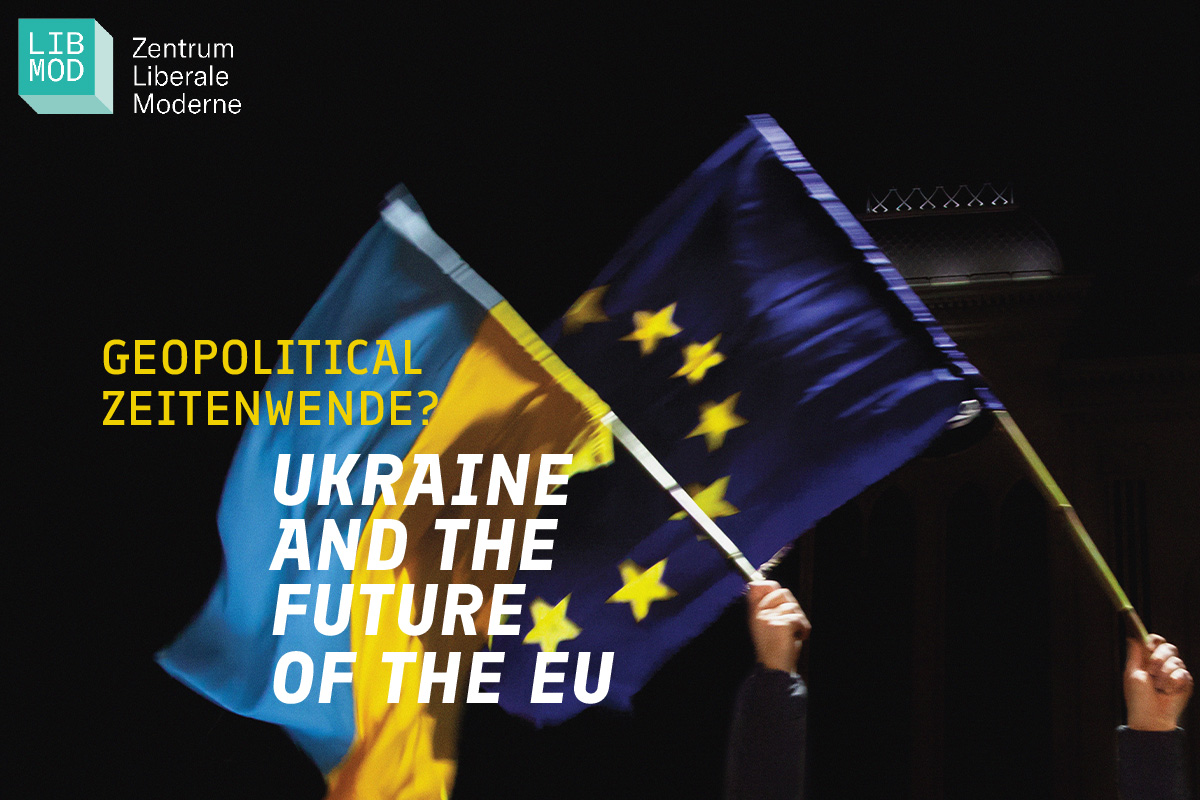Input Paper “Fighting corruption in Ukraine”

As part of our project “Eastern Partnership Plus”, we are publishing a first series of input papers on the topic of anti-corruption reforms in Ukraine, Georgia and Moldova. The authors from the region (Kateryna Ryzhenko, Ion Guzun, Sandro Kevkhishvili) analyse the role of the European Union in supporting the fight against corruption and formulate their political recommendations for decision-makers in Berlin and Brussels.
By Kateryna Ryzhenko
In 2014, major anti-corruption reforms were launched in Ukraine. Political changes opened the country up to successful international experience, a beginning of systematic reforms and active engagement by civic society. Several key achievements and reforms since then should be pointed out. Full-scale anti-corruption infrastructure has been created in Ukraine: over the past seven years, Ukraine has developed an anti-corruption infrastructure for the detection and investigation of high-level corruption offenses and the punishment of those who commit them. The following “the classic elements” of this infrastructure are worth mentioning here:
The National Anti-Corruption Bureau of Ukraine (NABU) is a law enforcement body established in 2015 whose purpose is to conduct pre-trial investigations into top-level corruption cases and to cleanse the government from corruption in order to enable the formation and development of a successful society and efficient state. The Specialized Anti-Corruption Prosecutor’s Office (SAPO) is mainly responsible for supporting and overseeing criminal investigations launched by the NABU. All cases from NABU-SAPO are adjudicated by the High Anti-Corruption Court of Ukraine (HACC). The launch of this court was one of the greatest anti-corruption achievements in 2019.
In addition to the law enforcement and judicial bodies, the anti-corruption infrastructure includes two central executive bodies that have a special status: the National Agency on Corruption Prevention (NACP) is responsible for the development of anti-corruption policy and prevention of corruption and the National Agency of Ukraine for detection, investigation and management of assets received from corruption and other crimes (ARMA: Asset Recovery and Management Agency) was established with the aim of identifying, tracing and managing the relevant assets.
In addition to establishing anti-corruption institutions, Ukraine carried out numerous reforms in different sectors involving the creation of registries, digitalization of processes and the opening of new possibilities for citizens and business. The most successful of these are:
- Digitalization and the implementation of new rules in the public procurement sphere – the electronic public procurement system ProZorro, which is based on the OCDS standard, is innovation that has garnered international attention. The system makes information on tenders available to everyone. Ukraine has won recognition around the world as a leader in procurement reform.
- The electronic auction system Sale is used to for the liquidation of assets from insolvent banks, for small-scale privatization and lease of communal and state property. Now, when a public or municipal asset or property is being sold, everyone has the opportunity to bid for it.
Productive cooperation between the state, business and civic society organizations made the implementation of the abovementioned reforms possible.
Obviously, not all efforts are going smoothly and/or speedily. There are several challenges, and they must be addressed in the near future. The following are examples of issues considered problematic.
Procedures for selecting the heads of anti-corruption institutions must be reassessed in order to eliminate possibility of political influence. Currently, the terms of the appointments of the heads of the SAPO and the ARMA are not very long, which significantly limits their effectiveness. A new competitive selection procedure for the position of the NABU director is slated to begin in less than a year, but parts of the legal provisions regulating this process have been declared unconstitutional by the Constitutional Court of Ukraine.
There is continuing pressure on independent institutions. For example, due to flaws in the legislation governing the prosecutor’s office and the limited powers of the acting head of the SAPO, the Prosecutor General has been able to interfere repeatedly in high-profile NABU-SAPO investigations, undermining the independence of these institutions. The Prosecutor General did not pass up the opportunity to study and even influence the proceedings in the high-profile corruption cases of 2020. Securing an effective system of checks and balances that will ensure the independence of the anti-corruption infrastructure from administrative and political pressure should therefore be a priority.
The unreformed judicial system remains the greatest threat to the sustainability of reforms in all the areas. In fact, no progress has been made on judicial reform in the past two years. Last year, the President and Parliament tried several times to start a painful process of change. A first attempt at judicial reform, in the form of a draft law submitted by the President, had been adopted by Parliament in 2019, but key provisions of that legislation were declared unconstitutional by the Constitutional Court of Ukraine on 11 March 2020.
The next attempt to launch the reform was also initiated by the President in the form of several draft laws submitted to Parliament. Currently awaiting finalization and the second reading, they have been mercilessly criticized by the Venice Commission and the expert community. A high standard of integrity on the part of members of self-governing judicial bodies, who are elected with the participation of the international community and civil society experts, remains a current requirement of the IMF, is the subject of a recommendation of the Venice Commission and is demanded by the public.
In addition to the abovementioned issues, attempts to disrupt and nullify anti-corruption achievements in the field of public procurement in the past several years also provide cause for concern. In particular, both the Government and the Parliament are trying to amend the legislation and implement localization in public procurement, an approach which, according to researchers in the field, would drive the domestic economy into a dead end. Moreover, this initiative would violate commitments undertaken by Ukraine in the Ukraine-EU Association Agreement and in the Agreement on Government Procurement within the framework of the WTO.
Which tasks should take priority?
Ensuring the independence and capacity of the anti-corruption infrastructure. Carrying out a transparent and politically impartial process for the competitive selection of heads of anti-corruption institutions. Securing an effective system of checks and balances ensuring the independence of anti-corruption infrastructure from administrative and political pressure. Providing anti-corruption bodies with the legislative tools necessary for the full implementation of their functions.
Forming a professional and independent judiciary. Electing (appointing) a fair compositionto self-governing judicial bodies with the participation of the international community and public experts. Submission to Parliament of a new comprehensive draft law taking all the recommendations from the Venice Commission on the reform of the Constitutional Court into account and the prompt consideration thereof.
Introducing a system for the management of public assets that ensures transparency and accountability and safeguarding the further development of the procurement sector. Disclosing information about state-owned enterprises. Developing a new register of state-owned enterprises as an accessible and convenient tool for visualization and search of enterprises. Changing the legal framework for the management of state assets. Improving the areas of procurement in line with international commitments (refraining from adding to the list of contract types not falling within scope of the Law on Procurement). Ensuring effective control and monitoring of procurement by the State Audit Office.
What is the EU’s role in supporting the fight against corruption in Ukraine?
The European Union has been one of the main supporters of reforms in Ukraine in general and of the establishment of anti-corruption legislation and institutions in particular. Combatting corruption was always a primary focus of conditionalities attached to a number of macro-financial assistance packages and played a crucial role in the visa liberalisation action plan.
Every year the European Commission issues a report assessing Ukraine’s continuous fulfilment of visa liberalisation requirements on the basis of its monitoring activity. Definitely an important document, this thorough report contains an analysis and highlights certain results and trends, including in the anti-corruption sphere. The development of anti-corruption indicators, which could be based on the visa liberalisation action plan (VLAP), and the quarterly monitoring of those indicators would be a way to obtain an even better and fuller picture on a continuing basis. This kind of monitoring might also be a helpful tool for international partners and national civil society organizations to use in their advocacy work.
Macro-financial Assistance (MFA) is a form of financial aid that the EU has extended to Ukraine since the outbreak of the crisis in early 2014. Ukraine and the EU jointly signed a Memorandum of Understanding (MoU) outlining the policy programme attached to the MFA operation. This programme, based largely on the reform agenda pursued by the Ukrainian authorities, covers a broad range of areas, including public finance management, governance and transparency, the energy sector, social safety nets, business environment and the financial sector. Important anti-corruption conditionalities are attached to the assistance in the MoU.
Considerable financial support has been provided newly created institutions and civic society organisations by other European programmes as well, such as the funding from EU Anti-Corruption Initiative (EUACI). Funded by the EU and Denmark and implemented by the Danish Ministry of Foreign Affairs, the EUACI is the EU anti-corruption program in Ukraine. This initiative began a new four-year phase in May 2020 with a 22.9 million-euro budget.
On 25 January 2021, the G7 ambassadors to Ukraine made public a set of clearly articulated recommendations as to action Ukraine should take next in its fight against corruption. In their “roadmap” for strengthening anti-corruption institutions and reforming the judiciary, the G7 ambassadors acknowledge the fact that recent decisions by the Constitutional Court of Ukraine have created a threat to the country and its democratic reforms. They go on to identify a number of priorities on which they believe Ukraine should concentrate, and propose deadlines for their implementation. Specifically, they identify the following as the most urgently needed steps: 1. re-establishing with a firm legal basis the anti-corruption provisions recently declared unconstitutional; 2. prevent the Constitutional Court from causing further harm while it is being reformed; and 3. ensure all nominations to key judicial and law enforcement bodies are transparent, merit-based, and credible.
It is necessary to underline that the priorities identified by the G7 are fully supported by the civil society experts and activists. Unfortunately, the majority of the recommendations have not yet been implemented. Although the deadlines proposed by the G7 ambassadors lie in the past or will soon do so, the priority actions the roadmap proposes are still very relevant. Further support for and insistence on the urgent necessity of these priorities on the part of the EU would definitely be beneficial for Ukraine and its anti-corruption efforts.
Kateryna Ryzhenko
Head of Legal, Transparency International Ukraine
Gefördert durch:

![]()
Did you like thike this article? If yes, you can support the independent editorial work and journalism of LibMod via a simple donation tool.
We are recognized as a non-profit organization, accordingly donations are tax deductible. For a donation receipt (necessary for an amount over 200 EUR), please send your address data to finanzen@libmod.de
Related topics
Newsletter bestellen
Stay tuned with our regular newsletter about all our relevant subjects.





